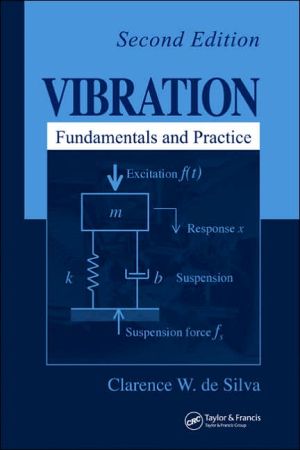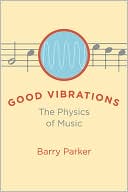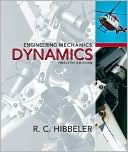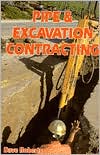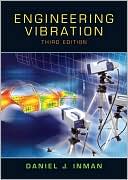Vibration: Fundamentals and Practice
Maintaining the outstanding features and practical approach that led the bestselling first edition to become a standard textbook in engineering classrooms worldwide, Clarence de Silva's Vibration: Fundamentals and Practice, Second Edition remains a solid instructional tool for modeling, analyzing, simulating, measuring, monitoring, testing, controlling, and designing for vibration in engineering systems. It condenses the author's distinguished and extensive experience into an easy-to-use,...
Search in google:
Maintaining the outstanding features and practical approach that led the bestselling first edition to become a standard textbook in engineering classrooms worldwide, Clarence de Silva's Vibration: Fundamentals and Practice, Second Edition remains a solid instructional tool for modeling, analyzing, simulating, measuring, monitoring, testing, controlling, and designing for vibration in engineering systems. It condenses the author's distinguished and extensive experience into an easy-to-use, highly practical text that prepares students for real problems in a variety of engineering fields.What's New in the Second Edition?A new chapter on human response to vibration, with practical considerationsExpanded and updated material on vibration monitoring and diagnosisEnhanced section on vibration control, updated with the latest techniques and methodologiesNew worked examples and end-of-chapter problems. Incorporates software tools, including LabVIEW™, SIMULINK®, MATLAB®, the LabVIEW Sound and Vibration Toolbox, and the MATLAB Control Systems ToolboxEnhanced worked examples and new solutions using MATLAB and SIMULINKThe new chapter on human response to vibration examines representation of vibration detection and perception by humans as well as specifications and regulatory guidelines for human vibration environments.Remaining an indispensable text for advanced undergraduate and graduate students, Vibration: Fundamentals and Practice, Second Edition builds a unique and in-depth understanding of vibration on a sound framework of practical tools and applications.
VIBRATION ENGINEERING Introduction Study of Vibration Application Areas History of Vibration Organization of the Book Problems TIME RESPONSE Introduction Undamped Oscillator Heavy Springs Oscillations in Fluid Systems Damped Simple Oscillator Forced Response Problems FREQUENCY RESPONSE Introduction Response to Harmonic Excitations Transform Techniques Mechanical Impedance Approach Transmissibility Functions Receptance Method Problems VIBRATION SIGNAL ANALYSIS Introduction Frequency Spectrum Signal Types Fourier Analysis Random Vibration Analysis Other Topics of Signal Analysis Order Analysis Machine Monitoring and Fault Diagnosis Problems MODAL ANALYSIS Introduction Degrees of Freedom and Independent Coordinates System Representation Modal Vibrations Orthogonality of Natural Modes Static Modes and Rigid Body Modes Other Modal Formulations Forced Vibration Damped Systems State-Space Approach Problems DISTRIBUTED-PARAMETER SYSTEMS Introduction Transverse Vibration of Cables Longitudinal Vibrations of Rods Torsional Vibration of Shafts Flexural Vibration of Beams Damped Continuous Systems Vibration of Membranes and Plates Problems VIBRATION DAMPING Introduction Types of Damping Representation of Damping in Vibration Analysis Measurement of Damping Interface Damping Problems VIBRATION INSTRUMENTATION Introduction Vibration Exciters Control System Performance Specification Motion Sensors and Transducers Torque, Force, and Other Sensors Problems SIGNAL CONDITIONING AND MODIFICATION Introduction Amplifiers Analog Filters Modulators and Demodulators Analog-Digital Conversion Bridge Circuits Linearizing Devices Miscellaneous Signal Modification Circuitry Signal Analyzers and Display Devices Problems VIBRATION TESTING AND HUMAN RESPONSE Introduction Representation of a Vibration Environment Pre-Test Procedures Testing Procedures Some Practical Information Vibration Excitations on Humans Human Response to Vibration Regulation of Human Vibration Problems EXPERIMENTAL MODAL ANALYSIS Introduction Frequency Domain Formulation Experimental Model Development Curve Fitting of Transfer Functions Laboratory Experiments Commercial EMA Systems Problems VIBRATION DESIGN AND CONTROL Introduction Specification of Vibration Limits Vibration Isolation Balancing of Rotating Machinery Balancing of Reciprocating Machines Whirling of Shafts Design through Modal Testing Passive Control of Vibration Active Control of Vibration Control of Beam Vibrations Problems APPENDIX A: DYNAMIC MODELS AND ANALOGIES Model Development Analogies Mechanical Elements Electrical Elements Thermal Elements Fluid Elements State-Space Models Response Analysis and Simulation APPENDIX B: NEWTONIAN AND LAGRANGIAN MECHANICS Vector Kinematics Newtonian (Vector) Mechanics Lagrangian Mechanics APPENDIX C: REVIEW OF LINEAR ALGEBRA Vectors and Matrices Vector-Matrix Algebra Matrix Inverse Vector Spaces Determinants System of Linear Equations Quadratic Forms Matrix Eigenvalue Problem Matrix Transformations Matrix Exponential APPENDIX D: LAPLACE TRANSFORM Introduction Laplace Transform Response Analysis Transfer Function APPENDIX E: DIGITAL FOURIER ANALYSIS AND FFT Unification of the Three Fourier Transform Types Fast Fourier Transform (FFT)Discrete Correlation and Convolution Digital Fourier Analysis Procedures APPENDIX F: SOFTWARE TOOLS SIMULINK MATLAB Control Systems Toolbox LabVIEW APPENDIX G: RELIABILITY CONSIDERATIONS FOR MULTI-COMPONENT UNITS Failure Analysis Bayes' Theorem INDEX
